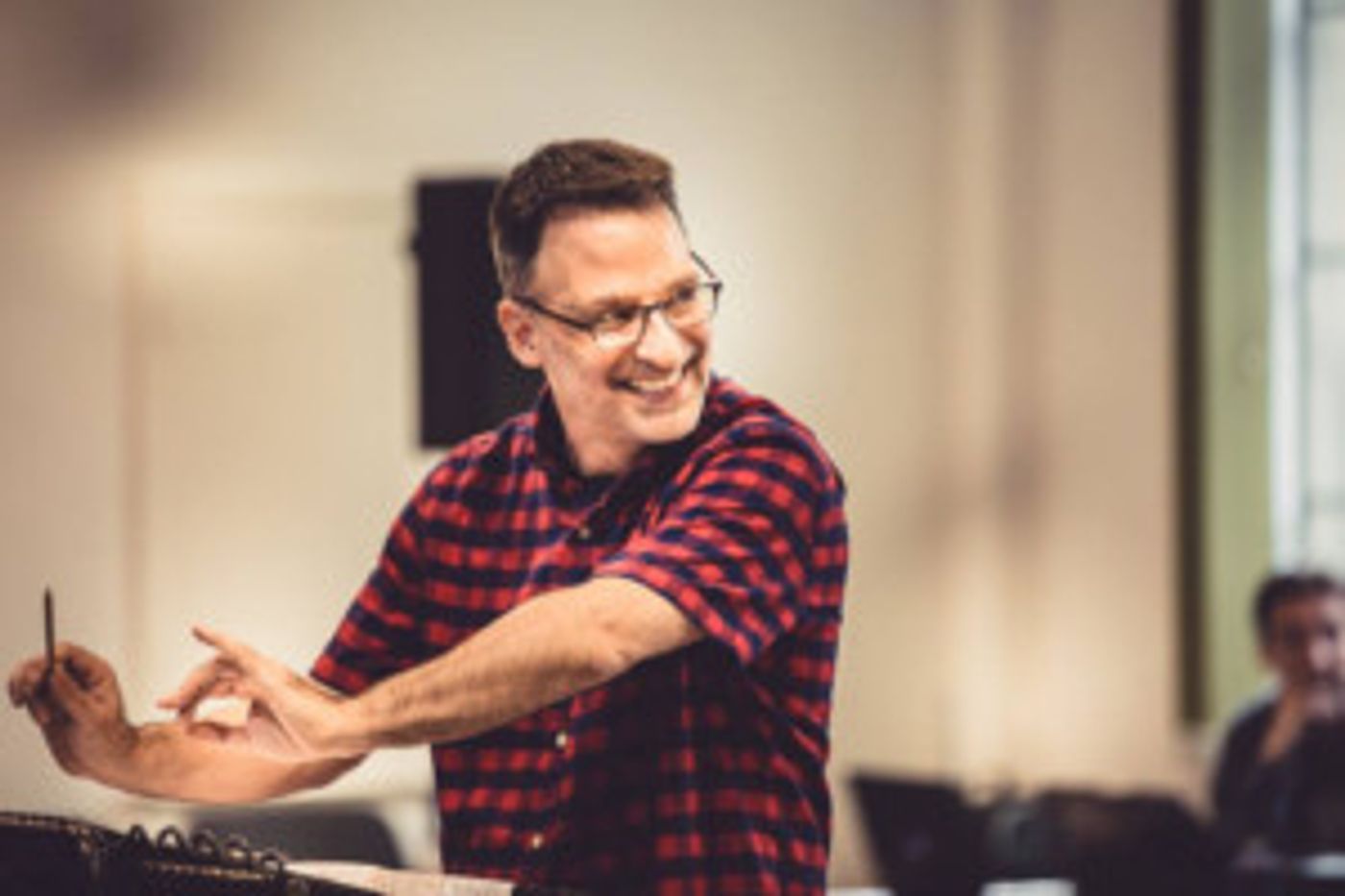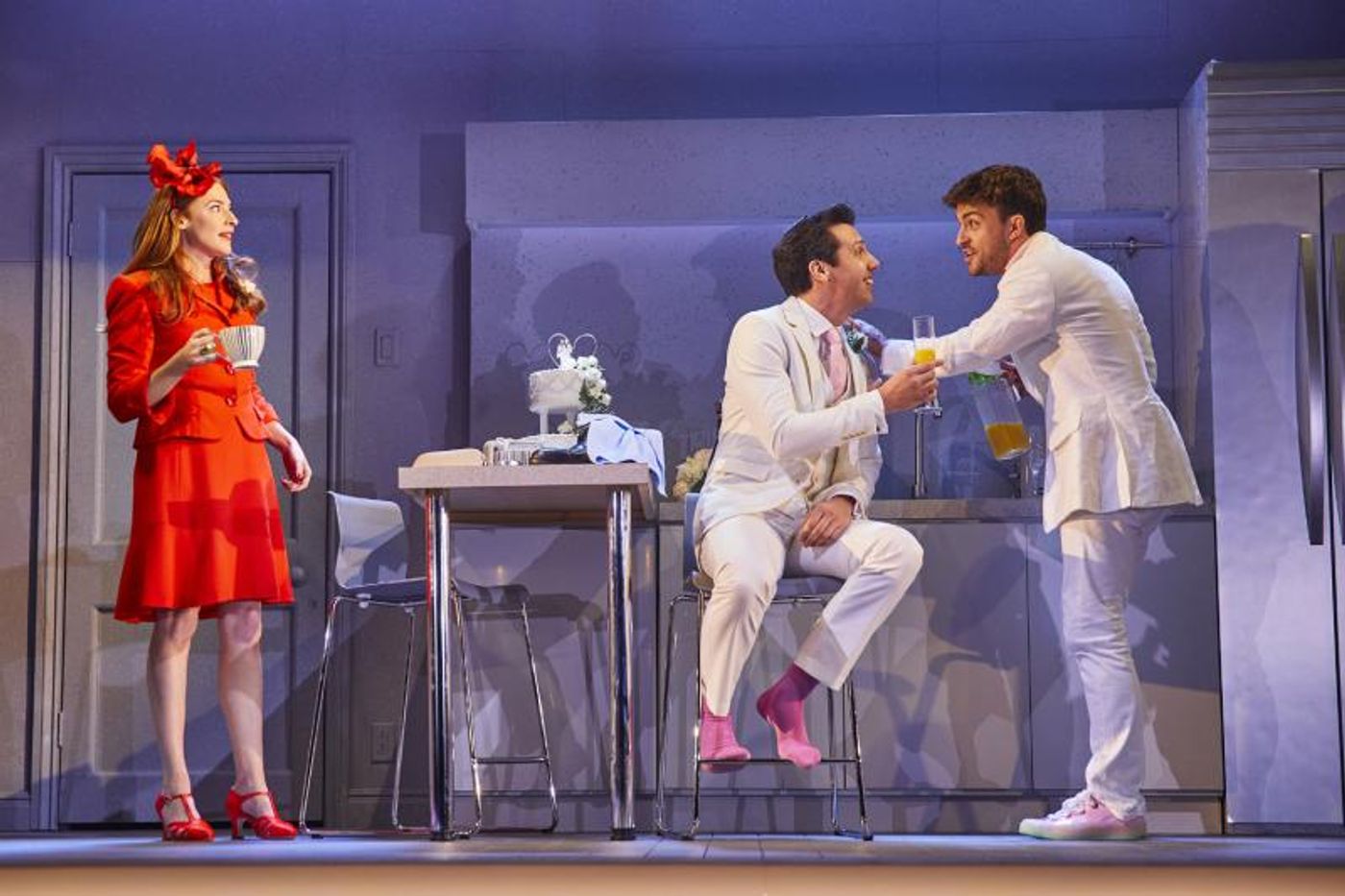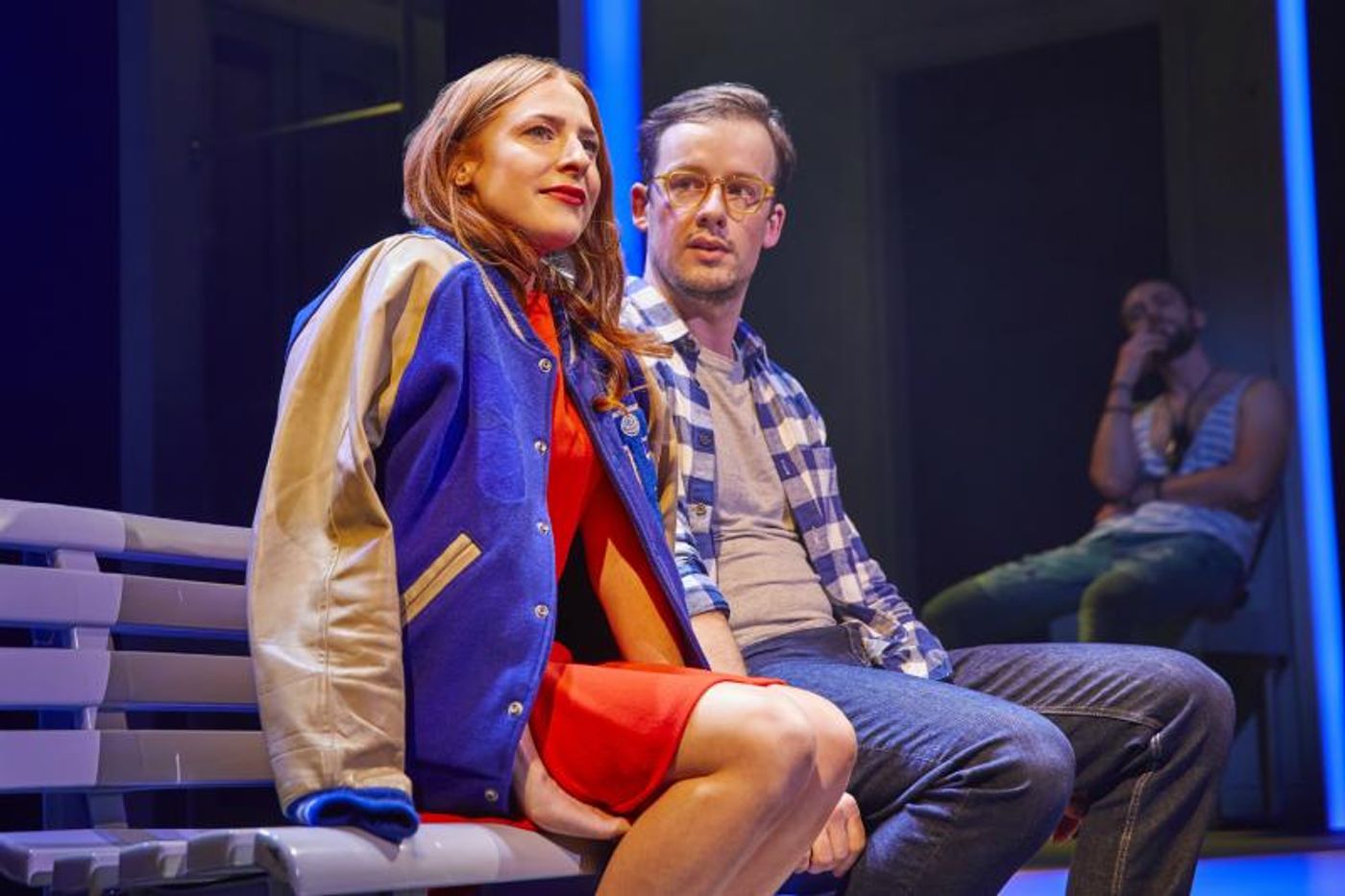Interview: Joel Fram On The Making of the COMPANY Cast Album

for Company
Another hundred people just got off of the train on their commutes into London...and you can bet more than a couple were listening to this!
The original cast recording of Marianne Elliott's acclaimed production of Company dropped mere hours ago. We caught up with Musical Director Joel Fram once again, to take you behind the scenes of what goes into making a cast album.
When we spoke last, you mentioned your love of theatre really started by listening to cast albums from that "faraway world" of Broadway. And here you are now, talking about the Company cast album which comes out today and which you have helped to create!
Honestly, it's incredible. Cast albums were always these magical things to me growing up - now I've (hopefully) created a few magic things of my own, with some wonderful people, working on some very special productions.
I've worked on many cast albums in a variety of ways: playing keyboards, conducting the chorus, music directing - even producing - and I'm proud of every one of those roles. As an MD, I've conducted A...My Name Is Alice, john & jen, The Little Princess, and Scandalous.
If you had told my 16-year-old self that I would be conducting a cast album of Company with Stephen Sondheim in the room, I don't think I would've believed you. And yet - it's happened.
Can you take us through how the album for Company came together?
The process involves a lot of people. There is the record company who agrees to make the album. They consult with the composer and then hire a record producer. The record producer meets with the show's producers and the music director and the director.
And the real question for all of them is "What form should the album take?".
There were many conversations and emails between me and Marianne and Stephen [Sondheim] and our record producer, Nigel Wright. Nigel has worked with everyone from Cliff Richard to Madonna. He's also produced a long list of Andrew Lloyd Webber cast albums, as well as several Stephen Sondheim recordings - including the recently released National Theatre's Follies, which is absolutely glorious.
You have to answer a lot of questions: how much dialogue should you include? How do you present numbers like "The Little Things You Do Together" and "Another Hundred People" that occur in separate parts during the actual show? Do you record any of the incidental or scene change music? How much of the dance music do you include?
The album is a document of many things, but most importantly it must accurately present the authors' work, and then reflect Marianne's vision of that work as she directed it onstage.
.jpg?format=auto&width=1400)
How did you reach that decision of what form it should take?
Well, to begin with, we listened very carefully to the other cast albums of Company (of which, happily, there are many).
We paid careful attention to how each album did or didn't use dialogue on various tracks: some songs had just enough dialogue to set up the number or suggest stage action; some recordings skipped the dialogue altogether; one album had large sections of the dialogue scenes intact between the various songs.
Ultimately, we decided that for us the cast album would be a music document. So dialogue would be kept to an absolute minimum - just enough to make you aware of where a song came in the show and how it functioned. But the focus would be on the music and the lyrics.
We tried as much as possible to make each song stand alone and feel like a satisfying event. An example of that is "Another Hundred People". In the show, it's fragmented into three sections, divided between three boyfriend scenes. But recording long stretches of talking is tricky on a record.
So Sondheim suggested a way to cut out the dialogue scenes and cut between the first and third sections of music, which when played straight through makes a very satisfying music-only version of the number.
How long did it take to record the album?
First of all, we wanted to be very considerate of both the actors' and the musicians' time. Making a recording can be an exhausting process, and you still have to do your eight shows a week. Recordings are traditionally scheduled on the day off - but then no one really gets any rest for two weeks in a row.
In the end, we planned four sessions: two on a Sunday, two on a Monday (with a show, of course, that Monday night). It's funny because you might think, "Oh, you've got four sessions to record a show you've performed over 90 times already - that should be easy!".
But in the studio time flies by, and there are always unexpected snags - problems with equipment, getting the mix right in everyone's headphones, computers crashing. So you really have to know exactly how you plan to record each number and use your time wisely and well. Who needs to be where. What needs to be said to the performers so they understand how the album will differ from the show. What order you record the songs in - sometimes you even decide to record different parts of the same song at completely different sessions. All of that has to be planned in advance.
I imagine you also considered what would help the cast with recreating those scenes, having someone to act alongside?
It's an amazing thing watching actors in a studio recreate a performance they usually do with the help of costumes, choreography, and an audience. It's a very different thing standing in your street clothes in a booth by yourself, directing it all into a mic. You can't even move around that much, because the mics are very directional and if you get too far away, they won't pick you up.
So having Marianne there was really important, because she knows exactly what she asked for in rehearsal and what each actor gave in performance, and whether or not that was coming across in the recording.
After a take, she would remind the actors of what we were trying to accomplish dramatically as well as musically - or help them create aurally what they had been able to suggest visually. She communicates beautifully with actors, and even in the studio knows how to bring out the best in them.

Alex Gaumond in Company
Speaking of having a good ear, to have Stephen there also must have been so great
'Great' doesn't begin to describe it! Stephen has an incredible ear for detail - his notes are very specific and very clear - and he understands that what works onstage doesn't necessarily work on a recording.
And yet, at the same time, he gives the actors a lot of latitude out of respect for what makes their performances individual, unique. He is first and foremost a dramatist, and he knew exactly when to step in so that what he had in mind when he wrote the songs would come through in the recording.
He was gracious and generous throughout - and he made sure to thank the orchestra for their amazing work. I will never forget his kindness.
It does seem like a lot to accomplish in four sessions!
It's true - and we were always aware that the clock was ticking.
Ultimately, Nigel - our record producer - is responsible for getting us across the finish line on time. He listens to every note of the session while his eyes are glued to the clock. He has to know when we've successfully captured everything we need - and which (out of multiple takes) are the best performances.
He has to accommodate the many opinions in the room, which he did incredibly gracefully. And sometimes when you think you might need another take, he'd move us along saying, "I promise, we've got it - let's move forward." And you know you can trust him.
Like Stephen, he has amazing ears. He would stop me immediately if the band didn't start together. When we were recording some of the choral backing vocals for "Getting Married Today", he made us do it over and over, until the parts were perfectly in tune and rhythmically precise.
Oddly enough, it was as joyful as it was stressful. I imagine it kind of feels like being an Olympic athlete. You train and you train and then suddenly: you're at the starting line. After all that planning, it's exhilarating to actually run the race - but a part of you thinks, "This would be a good time to be at my very best."

Seadon-Young in Company
And it's worth it all, to produce that magic you experienced listening to it in your room way back when. And to be inspiring the same reaction in someone listening to this album today.
I'm glad you said that. You can't help but feel that you are making a piece of history - a permanent record of what we tried to create in the theatre.
We want to honour Stephen Sondheim's work. We want people to understand Marianne's vision of what the show should be and say. And also what these individual performers brought to their roles: what makes Patti LuPone such an unforgettable Joanne? What makes Rosalie Craig the most vibrant, moving, definitive Bobbie?
In the end, I feel all of us can be incredibly proud of what we've made - an album that celebrates this brilliant score and truly reflects a thoughtful, modern reworking of Company that will resonate with listeners for years to come.
The 2018 London Cast Recording of Company is now available on iTunes.
Company plays at the Gielgud Theatre until 30 March, 2019
Liked learning about how the album came together? Read our other interview with Joel Fram, about the how the show itself came into being (alive).
Read more interviews with the Company of Company: Rosalie Craig, Jonathan Bailey and Alex Gaumond.
Check out our review of Company
Photo credit: Brinkhoff/Moegenburg
Powered by
|
Videos

